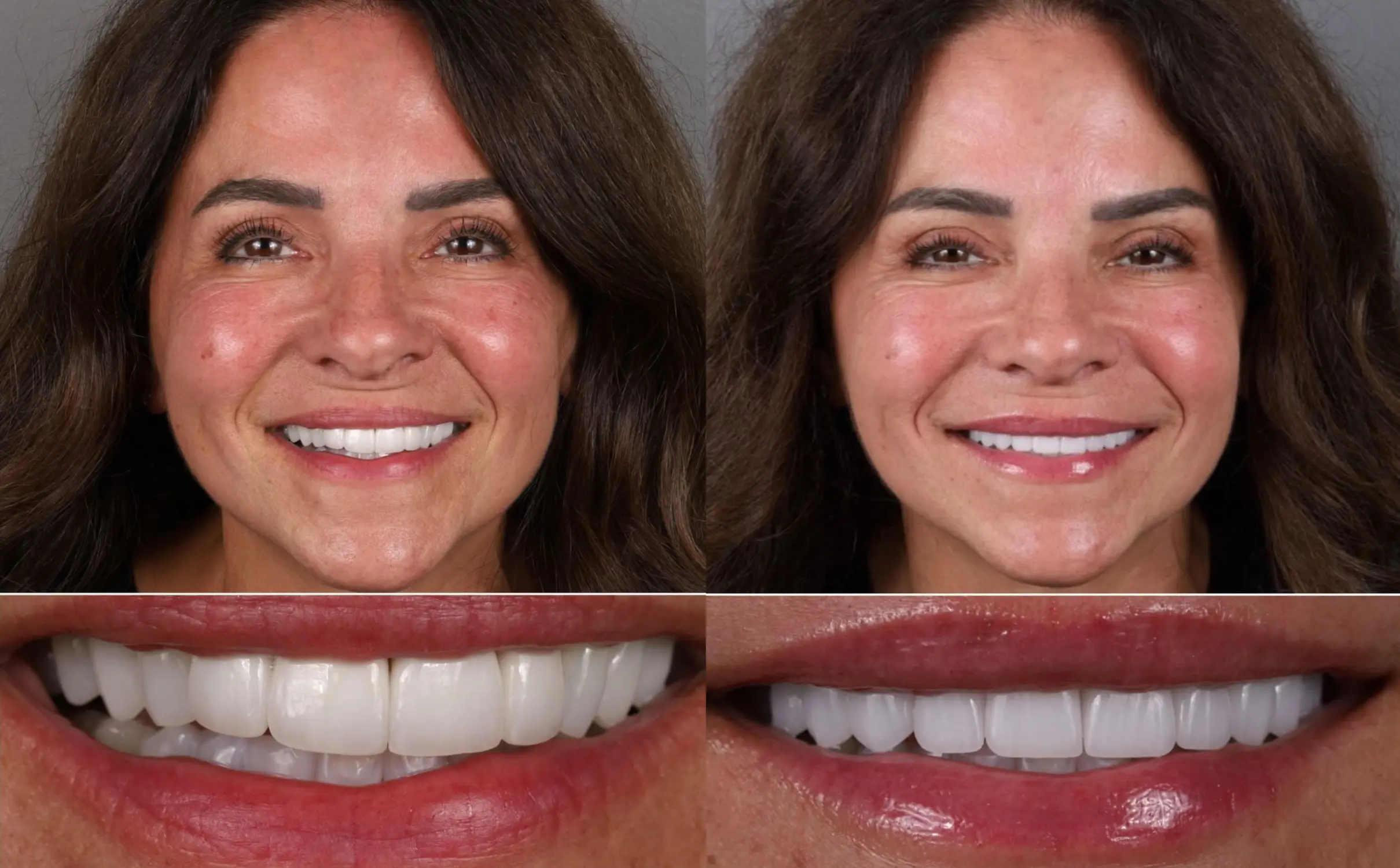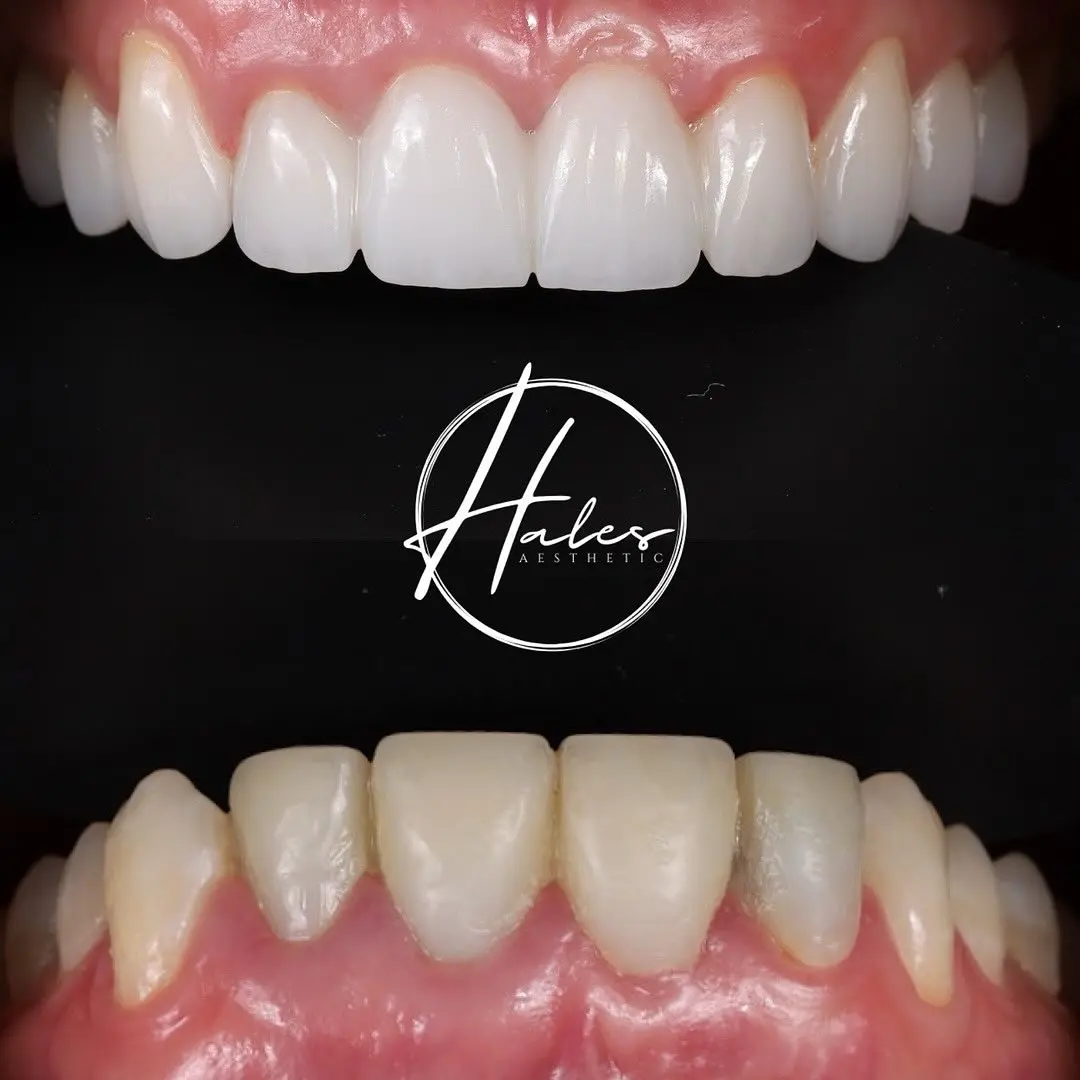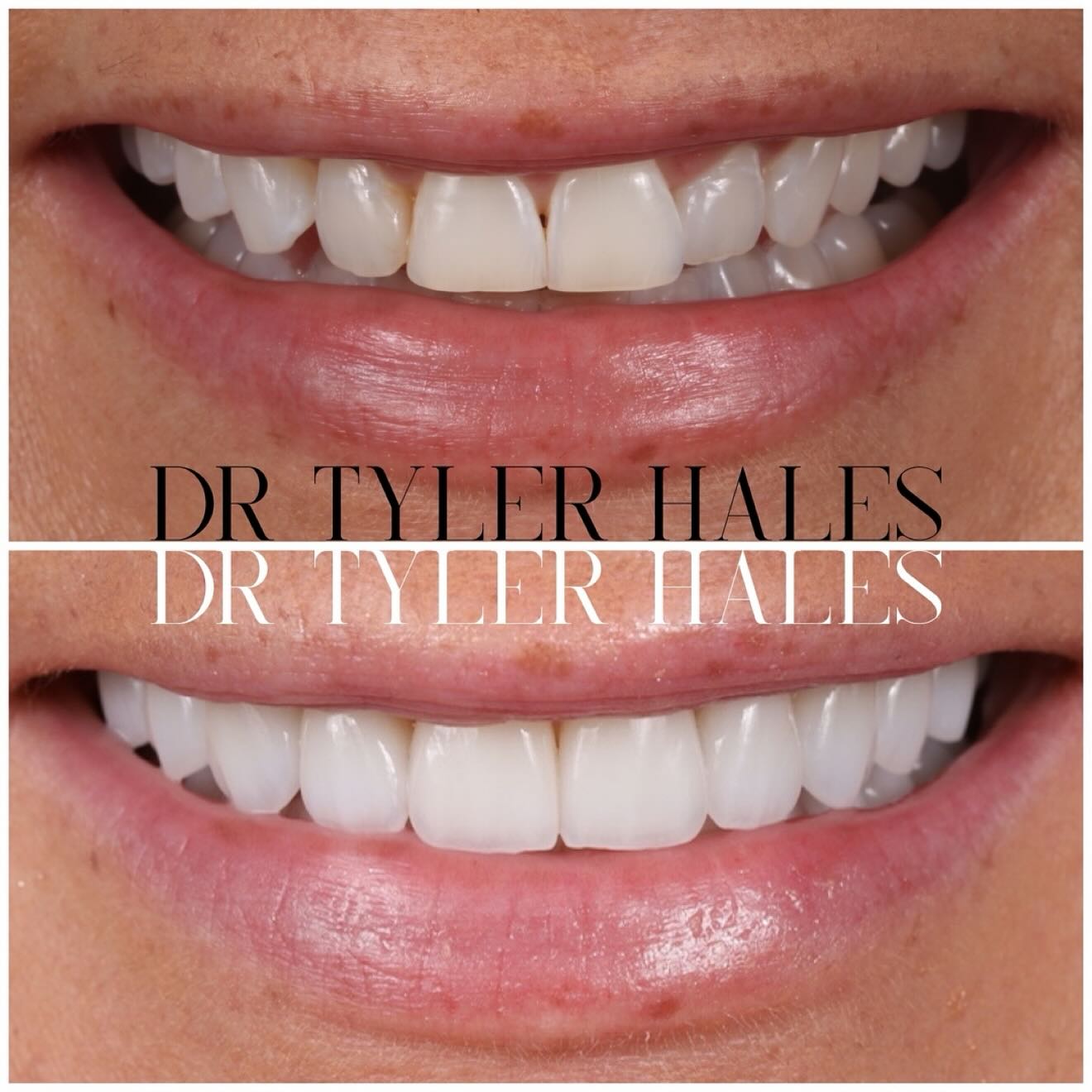Did you know that in 1928, Dr. Charles Pincus, a celebrity dentist, was tasked with a unique challenge: to create dazzling, picture-perfect smiles for the Hollywood stars of the silver screen. This led him to develop Veneers from an acrylic material that temporarily transformed teeth into pearly whites. Granted, it only lasted a couple of days, but veneers have evolved tremendously over the years to what they are today, lasting much longer.
Veneers have revolutionized cosmetic dentistry, offering individuals the chance to achieve their dream smile with various options tailored to their needs. Porcelain veneers, often regarded as the gold standard due to their durability and natural appearance, are a prime choice for those looking to make a long-term investment in their smile. Alternatively, composite veneers present an economical option, offering a quicker and cost-effective solution though they may not match the superior quality and longevity of porcelain veneers. This comprehensive exploration delves into how long they last, the factors that affect their durability, and how to extend their lifespan, ensuring your investment in a beautiful smile stands the test of time.

Understanding Veneers and Their Types
Before we discuss how long do veneers last, let’s first ensure you understand Veneers and the types available. Veneers are thin shells custom-made to fit over your front teeth, effectively masking imperfections such as discoloration, chipped teeth, and gaps. They are crafted from either porcelain or composite resin, each offering unique benefits.
Porcelain Veneers
Porcelain veneers are celebrated for their durability and stain-resistant properties. Mimicking the light-reflecting qualities of natural teeth, they provide a seamless and long-lasting solution for a smile makeover. With proper care, they can last anywhere from 20 to 30 years, making them a popular choice for those seeking a blend of aesthetics and longevity.
Composite Veneers
Porcelain veneers made using modern technology and techniques by a skilled dentist and ceramist should last 2-30 years or longer. Proper care of the veneers further improves their longevity. Porcelain veneers do not stain, so there is no need to avoid certain types of food or drink. They are not prone to chipping since porcelain is a strong material. However, it is not advised that people use their teeth for anything other than eating and drinking (e.g., opening objects).
Composite veneers are not resistant to staining and are not as durable as porcelain veneers, giving them a much shorter lifespan of only 2-5 years. They are not an ideal choice for longevity but can be a low-cost solution to cover a variety of structural and aesthetic blemishes in teeth.
How Long Do Veneers Last?
So how long do veneers last? The lifespan depends on whether you have porcelain or composite veneers and how well you take care of them. Porcelain veneers typically last for 20 to 30 years, while composite resin veneers usually need to be replaced sooner, lasting around 4 to 8 years. Due to the increase in technology and training, veneers have a much longer long lifespan. To make sure your veneers stay in good shape for as long as possible, it’s important to practice good oral hygiene and follow your dentist’s care advice.
It’s important to remember that porcelain veneers have the same strengths and weaknesses as a natural tooth and should be taken care of in exactly the same way. Maintaining your veneers helps increase longevity. Care for your new veneers the same way that you care for the rest of your teeth. Good oral hygiene is essential. Avoid biting into hard foods and ice to prevent breakage. Like normal teeth, veneers are susceptible to staining, so avoid eating and drinking tooth-staining foods and beverages.

Factors Influencing the Lifespan of Veneers
Several factors can affect how long veneers last, ranging from the material used to individual lifestyle choices and oral hygiene practices. Interested to know how to care for your veneers, check out our blog where we share 10 essential tips on how to care for your veneers.
Oral Hygiene and Care
Good oral hygiene is paramount in extending the lifespan of your veneers. Regular brushing with a non-abrasive toothpaste, flossing, and dental check-ups can prevent issues such as gum disease and tooth decay, which can undermine your veneers. Furthermore, avoiding hard foods, hard candies, and using a mouthguard if you’re prone to teeth grinding can protect your veneers from unnecessary wear and tear.
Lifestyle Choices
Lifestyle choices, such as the consumption of stain-inducing beverages like red wine and coffee, can affect the appearance of your veneers, especially composite resin veneers. Smoking can also lead to discoloration. Adopting habits that avoid or minimize exposure to these elements can keep your veneers looking new for longer.
Professional Dental Care
Regular dental check-ups and cleanings are critical to maintaining not just your oral health but the integrity of your veneers. During these visits, your dentist can identify and address any potential issues early on, ensuring your veneers and the underlying natural teeth remain in top condition.
Maximizing the Lifespan of Your Veneers
To maximize the lifespan of your veneers, consider the following best practices:
- Choose the Right Type: Discuss with your cosmetic dentist whether porcelain or composite resin veneers are more suited to your lifestyle and cosmetic goals.
- Maintain Good Oral Hygiene: Brush twice a day with a soft-bristled toothbrush and non-abrasive toothpaste. Floss daily and use an antiseptic mouthwash to keep your mouth free of bacteria.
- Regular Dental Visits: Schedule dental check-ups and cleanings at least twice a year. These visits allow your dentist to monitor the health of your veneers and address any issues promptly.
- Wear a Mouthguard: If you engage in sports or grind your teeth at night, wearing a mouthguard can protect your veneers from damage.
- Avoid Staining Foods and Beverages: Be mindful of consuming foods and drinks that can stain your veneers. Use a straw when possible, and rinse your mouth with water after consuming such items.

Replacing Veneers: What to Expect
Even with impeccable care, veneers will eventually need to be replaced. The process is similar to the initial application, where the old veneer is removed, an impression of your teeth is taken, and a new veneer is crafted and applied. This process offers an opportunity to address any changes in your dental health or aesthetic preferences.
Why do veneers need to be replaced?
Dental veneers might require replacement under certain circumstances, such as:
- Gum Recession and Staining: Over time, as the gums recede, the veneer’s margin between the tooth root and veneer may become exposed, possibly resulting in a noticeable stain or a faint brown line.
- Chipping or Fracture: As veneers endure daily wear and tear, they can become susceptible to chipping or breakage, particularly as the materials (porcelain or composite) weaken due to the pressures of daily use.
- Bite Changes: Veneers can also break when biting dynamics change due to factors like tooth loss, erosion, or decay, altering the way teeth come together and placing additional stress on the veneers.
The Role of Cosmetic Dentistry in Veneer Longevity
The role of a skilled cosmetic dentist is paramount in both the initial success and the enduring longevity of veneer treatments, underscoring the significance of cosmetic dentistry in this process. The expertise of the dentist in precisely determining the amount of enamel removal needed, adeptly applying temporary veneers, and flawlessly fitting the final new veneer is critical. This meticulous attention to detail not only guarantees a more natural and attractive smile makeover but also enhances the durability of the veneers. Therefore, choosing the right cosmetic dentist is a crucial decision that impacts the overall effectiveness and lifespan of veneer treatments.

Conclusion: A Worthwhile Investment for the Long Haul
The question of how long they last is complex, with the answer depending on a multitude of factors, from the type chosen to the care they receive. However, with the right care and lifestyle adjustments, your veneers can serve as a long-lasting testament to your investment in your smile’s beauty and health. As you embark on or continue to enjoy your journey with veneers, remember that these tips can help extend their lifespan, ensuring your smile remains as vibrant and radiant as ever.
Consult With Dr. Hales Today
Finding a trusted partner by your side can make all the difference when it comes to veneers.
Dr. Hales’s commitment to artistry, precision, and authenticity ensures that your veneer journey transcends mere enhancement, offering you a radiant, natural smile that reflects your uniqueness.
You can trust that your veneer journey with Dr. Hales at Hales Aesthetic is more than just a procedure—it’s a personalized experience crafted to align with your aspirations and elevate your confidence. Take the first step towards attaining the natural-looking veneers you’ve envisioned by scheduling a free consultation with Hales Aesthetic today.






